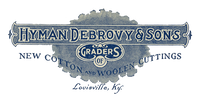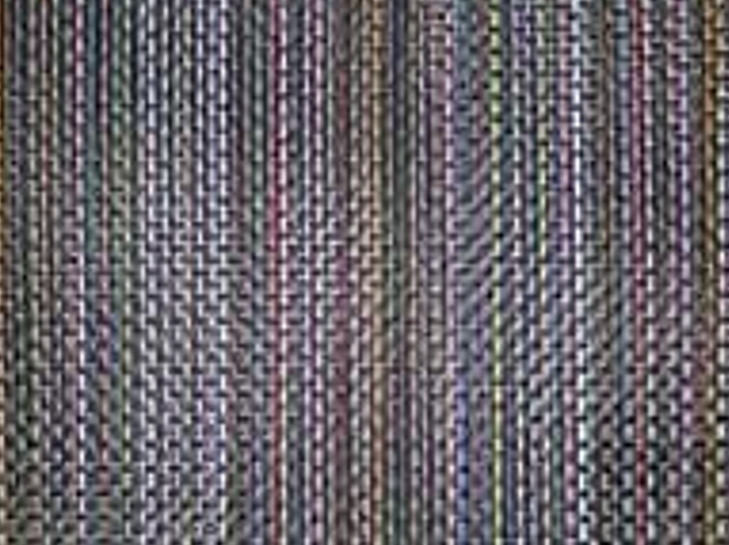Many industries, from construction to agriculture, need tarps that offer reliable protection against the elements as well as secure containment materials. Mesh tarps are a popular choice because of the combination of practicality and versatility. solutions for businesses that require breathability, strength, and adaptability.
At Debrovy’s, we supply heavy-duty mesh tarps that deliver superior performance in demanding environments.
What Are Mesh Tarps?
Unlike solid poly or vinyl tarps, mesh tarps are woven with small openings that allow air and some light to pass through. This breathable design distinguishes mesh tarps, enabling them to reduce wind resistance, control shade, and provide ventilation while still offering protection from debris, dust, or excessive sunlight.
Debrovy's offers a variety of mesh tarps, from polyester (including vinyl-coated polyester) to nylon, and in a variety of sizes and special features (e.g., pockets) to polypropylene.
Benefits of Mesh Tarps
- Breathability: Mesh tarps allow for enough airflow to reduce heat buildup and moisture retention, which has many applications, one being agricultural shade structures where ventilation prevents mold and heat stress.
- Wind Resistance: The permeability makes these tarps less likely to tear or become unsecured during gusty conditions.
- Shade Control: Light transmission can protect plants, livestock, or materials from intense sunlight without shuttering everything in darkness.
- Containment: Contains debris while letting air pass, which is invaluable on construction sites and during transportation of loose loads. We even offer heavy-duty mesh tarps tailor-made for refuse trailers.
- Durability: Made with UV-resistant materials, mesh tarps from reputable suppliers like Debrovy’s offer years of reliable service, even in harsh outdoor environments.
Common Uses for Mesh Tarps
- Construction Sites: dust control on fencing and scaffolding, windscreen to protect workers and pedestrians, debris netting.
- Transportation and Trucking: load containment for gravel, sand, mulch, or other loose materials; securing roll-off dumpsters
- Agriculture: shade cloth for nurseries, greenhouses, and livestock shelters; protect crops from sun overexposure; windbreaks to reduce plant damage
- Sports Facilities: screens around tennis courts and fields, windscreens on fences to improve playing conditions and aesthetics
- Industrial Facilities: dust containment, sectioning off restricted areas
- Recreational Areas: canopies for parks and playgrounds to create shaded spaces
Materials and Construction
- Heavy-Duty Weave: strong interlocking mesh pattern creates a resistance to stretching, tearing, or fraying, even under tension or frequent use.
- UV Stabilization: Debrovy's sells mesh tarps with UV-resistant finishes that extend the tarp’s lifespan by protecting against sun exposure and other harsh outdoor conditions.
- Reinforced Edges: Heavy-duty hems can strengthen the perimeter of the tarp, which in turn can reduce the risk of edge tearing.
- Brass Grommets: Debrovy's sells mesh tarps with grommets spaced every 24 inches (2 feet) along the edges to make it easier to secure and tie down the mesh tarp.
- Variety of Sizes and Colors: At Debrovy's, you can choose from white, black, tan, red, green, yellow, burgundy, blue, orange, gray, or even multicolor.
What to Look for When Choosing a Mesh Tarp
- Shade Density: This can help you determine the level of light reduction you need. For example, 50% shade could be ideal for mild sun protection in your climate. On the other hand, 85% or more could be sufficient for intense sunlight or privacy screens.
- Size: Measure the truck, machine, or other item to be covered. Doing so carefully can help you make sure that the tarp will adequately cover the area or load or thing in question. Be sure to account for extra material, as this can be necessary to secure the edges.
- Material Strength: Heavier gauge mesh tarps offer superior durability and tear resistance. This can be especially important for high-abrasion uses like hauling gravel or debris.
- UV Rating: Look for tarps with high UV resistance if you expect there to be prolonged sun exposure.
- Grommet Spacing: Closer grommets offer more-secure fastening in high-wind areas and other situations where you will benefit from tight tensioning.
- Color: Choose a color that meets your visibility or branding requirements.
Best Practices for Mesh Tarp Installation and Maintenance
- Secure Properly: Using bungee cords, ball ties, rubber straps, or rope to attach the tarp to structures or trucks can help you avoid excessive tension that could rip grommets or hems.
- Avoid Sharp Edges: This can prevent contact with sharp corners or abrasive surfaces that could cut or unduly wear the mesh.
- Clean Regularly: By removing dirt, debris, and mold with mild soap and water, you can help keep the tarp performing well and extend its lifespan.
- Store Correctly: Be sure to dry the tarp thoroughly and store it in a cool dry place out of direct sunlight.
- Inspect for Damage: Regularly check for tears, frayed edges, or missing grommets. Inspect the mesh tarp before its first use to see whether there are any defects that could warrant return or replacement. Small rips can be patched with repair kits to prevent the rips from becoming larger problems.
Mesh tarps at Debrovy’s are high quality and can meet your tarping needs. Reach out today to learn more!

